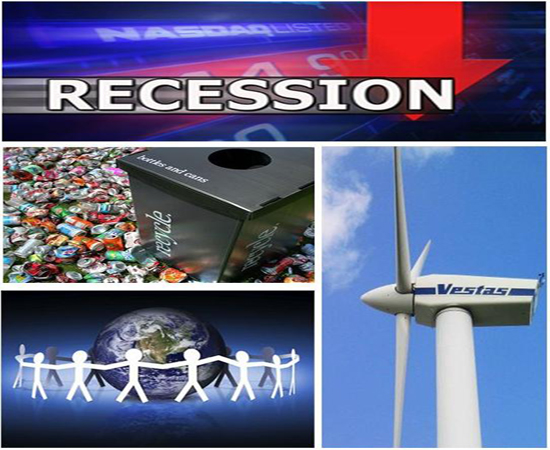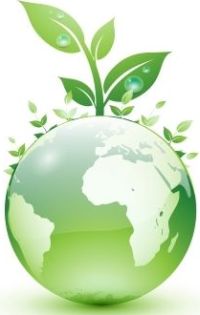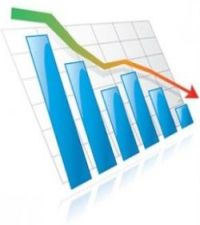
It’s a cruel thing to say… but if we are looking at a slowdown in the economy, there will be less fossil fuels burning, so for the climate it could be an advantage.
– Paul Crutzen, Nobel Prize-winning Chemist.
Well, this is true. However, if you think I am going to discuss the tenets of the “Economic Crisis” and its favorable impact on the environment, you’re on the wrong page. Nevertheless, it doesn’t mean I am blind to its positive aspects because in a way, it’s always easy to overlook the link between the “Global Recession” (and potential depression), the continuing rebuff of ecological well-being and the increase in human population. Even so, these three areas are extremely entwined. Hence, there were laws and protocols in the past to establish the need for a better sense and concern for nature.
Kyoto Protocol
The Kyoto Protocol, 1992, was essentially resolved to reduce greenhouse gases, but proved ineffective in the lack of will to deal with the global phenomenon. It urged the Annex I countries to devise policies and measures to increase the absorption of these gases and utilize joint execution, clean development mechanism and emissions trading. It also pushed the developed countries to make sure that the developing ones wouldn’t lag behind. So, there were adaptation funds for climate change.
Global Recession
Accordingly, not a long time back, the green technologies and concepts were prospering and leading firms being well aware of their environmental positives were gladly adopting these. However, US economic growth has slowed down as a part of a major economic upheaval. It’s the same worldwide, I must say. So, there’s a decreased demand for green goods and services, leading to a decrease in production and layoffs. Investors don’t seem to spend more and thus stock markets are falling on negative sentiment. So, isn’t the recession replicating itself to worsen the scenario evermore? If yes, then it’s the high time to analyze the pros and cons of the environmental and economic predicament and also to find the way out of the quagmire.
Positives

I do feel that recession could be beneficial for the environment to some extent. As the propensity to consume goes down, people will prefer hybrid and fuel-efficient vehicles to inefficient SUVs, leading to less CO2 emissions. Recession might ensure a sharp decline in demand for bio-fuels that are obtained from palm nut. So, you need not to burn the virgin rainforests. There’ll be less shipping, oil slicks and carbon emissions. Also, mobile phones and plasma TV sales will be negatively affected with positive environmental impact, i.e. fewer toxins going into landfills and less use of electricity.
I won’t say these conjectures are groundless. Still, we have naysayers who doubt if the Kyoto commitments would ever be realized and also believe that the global recession has deteriorated the equation to a greater extent. Let’s analyze what they think!
Negatives
If the financial slump keeps on squeezing the companies, they’ll drop their green programs as these, generally, are the long-term revenue generators. Companies won’t spend on clean technology, green innovations and fair trade, thus putting the research work to a standstill. People won’t feel inclined to use green products; they won’t be buying recycled paper, recycling bins and CFL bulbs, owing to the hefty price tags these come with. As a result, obviously, commoners will look for less expensive products when money is tight. The consideration, whether the product is green or not, comes much later.
Past Trends
In a broader sense, the muted repercussions are more than we think of. We’ve already seen a number of green projects facing the heat of recession. It’s just the same with the governments across the world.

No doubt, the green building projects yearn to reduce a company’s carbon footprint and conserve resources, but green development has suffered from the credit crunch. Lehman Brothers’ bankruptcy initiated a dubious phase for the wind turbine projects along the “Michigan’s Thumb” and ruined these ecologically constructive ventures finally.
European alternative energy companies viz. German solar panel maker Q-Cells and Danish wind-turbine manufacturer Vestas scuttled to stay even with global demand seeing the soaring prices for solar cells and wind turbines.
The recession nibbles the $3 billion recycling industry as per the Minnesota Pollution Control Agency reports. The market for recycled materials has slowed considerably while recycled plastics, aluminum, scrap metal and paper declined 50 to 75 percent in value. If recycling facilities cut back on services, you might find the public changing its attitude on the same.
Conclusion
However, in the words of Ban Ki Moon, the UN Secretary General:
Mitigating climate change, eradicating poverty and promoting economic and political stability all demand the same solution: we must kick the carbon habit. This is the theme for World Environment Day 2008. “Kick the Habit: Towards a Low-Carbon Economy” recognizes the damaging extent of our addiction, and it shows the way forward.
Well, it’s sad but true; the governments across the world are seeking excuses and are taking a U-turn on their ecological commitments. The US, one of the world’s top polluters, has continually abandoned compulsory national reduction targets, agreed to under the Kyoto Protocol a decade ago. Even Japan struggles to meet the obligations and to cut greenhouse gas emissions by 6 percent, by 2012. So, how can we talk about or even dream of a low carbon economy when low carbon itself demands top liquidity?




